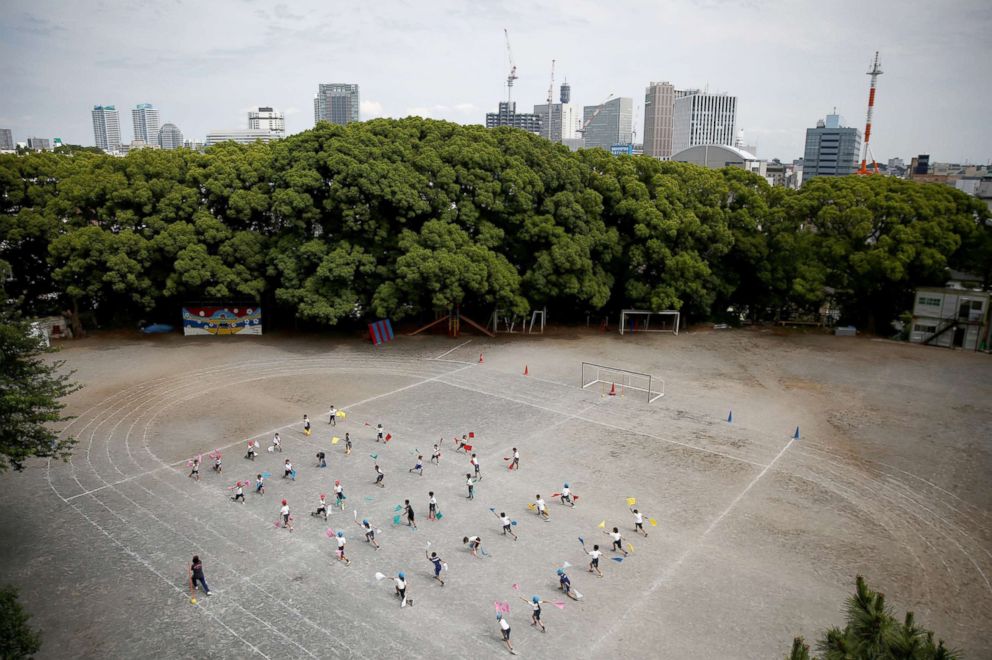New hope for Koreans living in Japan ahead of summit
They are closely watching the historic summit between Trump and Kim.
Ethnic Koreans in Japan loyal to Pyongyang hope next week's historic U.S.-North Korea summit will help bring reconciliation on the Korean peninsula and clarify their own murky legal status.
Their optimism has been growing since April's upbeat summit of the leaders of North and South Korea and ahead of next Tuesday's meeting between U.S. President Donald Trump and North Korean leader Kim Jong Un in Singapore.
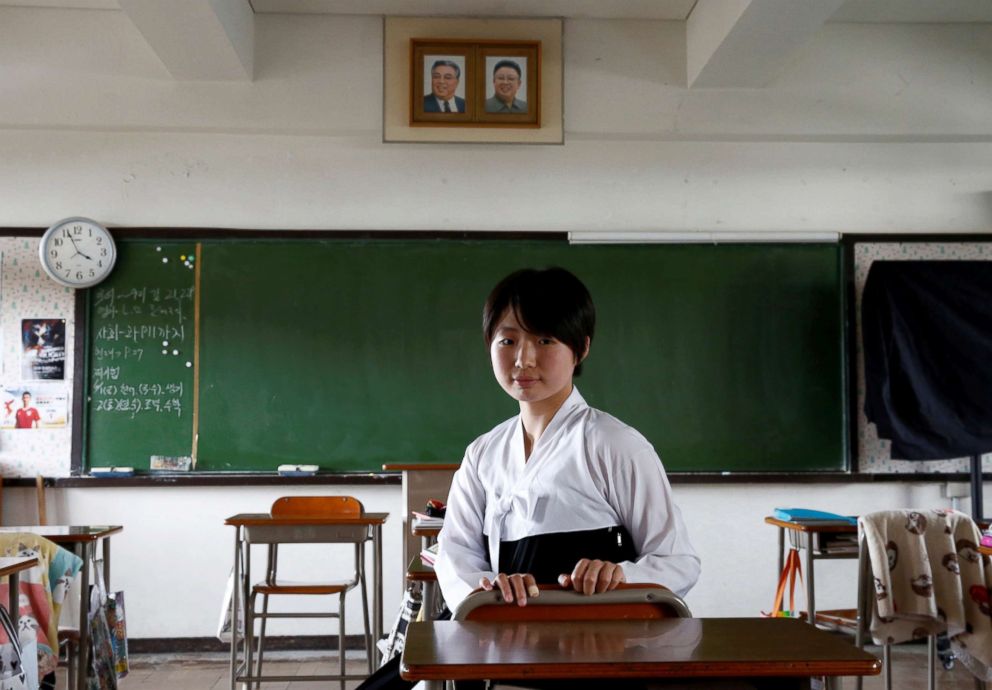
"I thought reunification was something in the distant future, especially with all the sanctions" on the North, said 17-year-old Paeng Yu Na, who attends one of about 60 schools across Japan affiliated with the North.
"But it now feels so much closer," said Paeng, who wears traditional Korean dress along with her classmates, although not beyond school walls to avoid attacks from right-wing nationalists.
Paeng is one of the "zainichi" minority, Japan's largest such ethnic group, descended from Koreans who moved or were brought to the country during its colonial rule of the peninsula from 1910 to 1945.
Over the years, many ethnic Koreans have opted for Japanese citizenship, while others have taken South Korean nationality, totalling about 450,000.
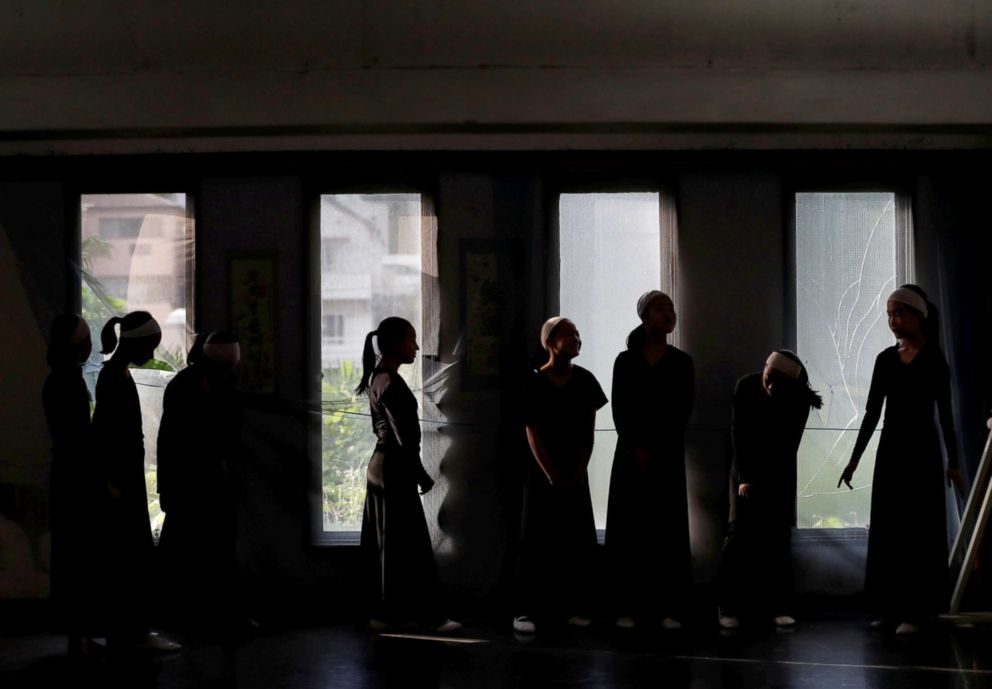
But a smaller community of about 30,000 have remained loyal to North Korea, stuck in a legal gray zone with permanent residency but no legal nationality, as the countries lack diplomatic ties.
Born and raised in Japan, most differ little from Japanese counterparts on the surface, speaking the language fluently and often marrying Japanese. But many have faced discrimination, with the ebb and flow of international politics shadowing their lives.
Job opportunities for pro-Pyongyang Koreans were long limited to firms run by members of their community, including nightclubs, barbecue restaurants and pachinko pinball parlours.
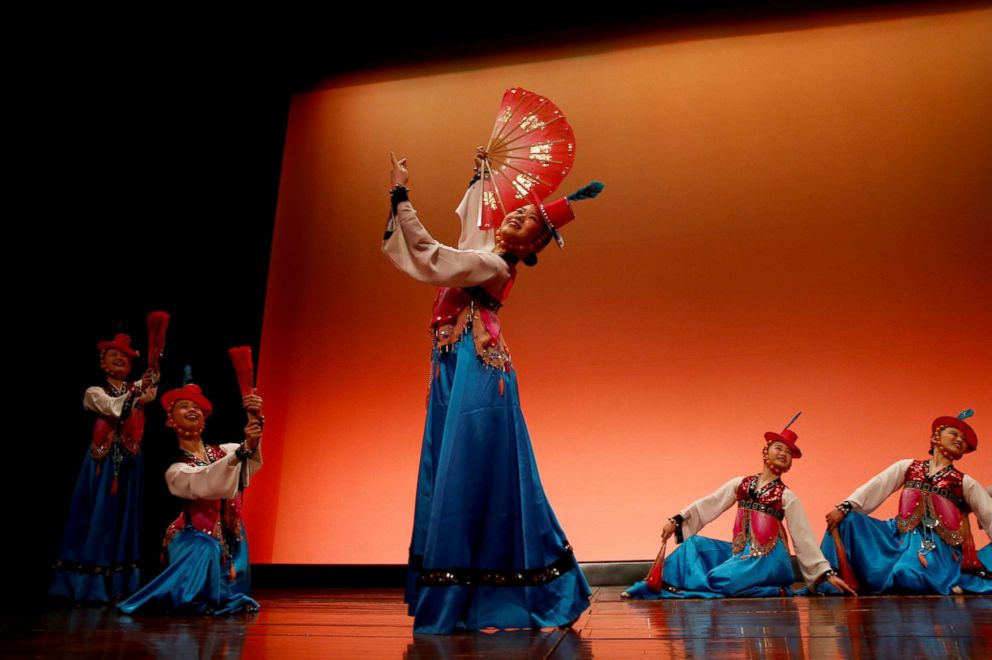
Some 90,000 in fact opted to leave for North Korea between 1959 and 1984, lured by the slogan "Let's go back to the fatherland!" Those numbers plunged in the 1980s as tales of the North's poverty spread.
Others supported the North with steady cash remittances and by carrying goods on a ferry that made occasional trips between the two nations until tightening sanctions banned its port calls.
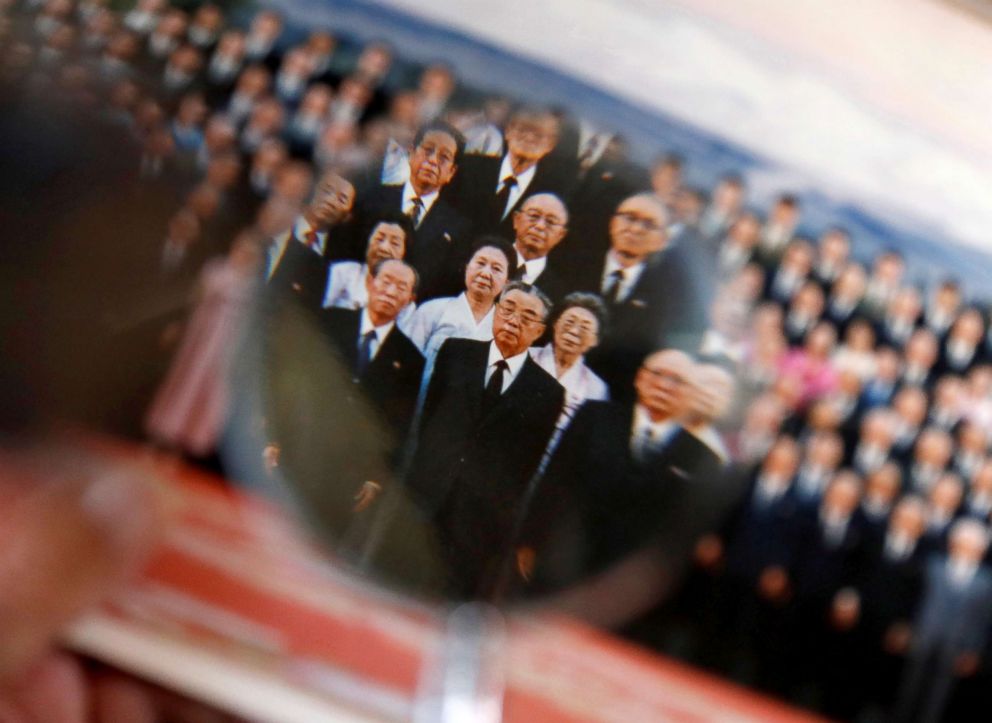
Each new round of North Korean nuclear tests brought threats and abuse. Students like Paeng, once a not unfamiliar sight on Tokyo streets in their long, traditional uniforms, became particular targets.
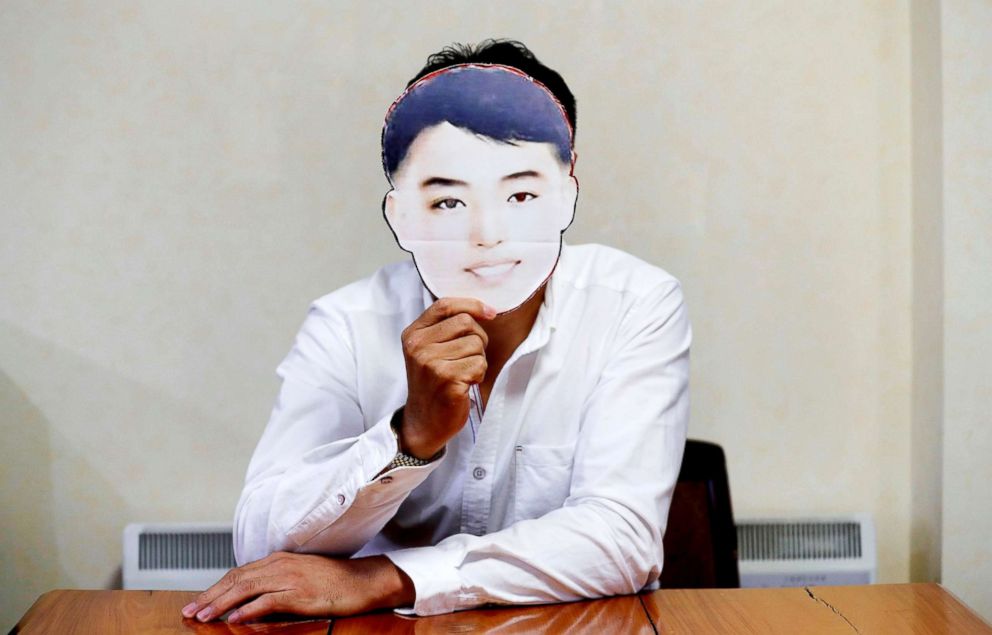
Hong Ryong Su, 49, a third-generation "zainichi", hopes the summit will yield not only a treaty ending the 1950s Korean War, which culminated in a truce that left both sides technically at war, but also improve conditions for the community.
"Living in Japan, we see a new path opening that will also normalise relations between North Korea and Japan," Hong said over a meal of kimchi and stir-fried beef at his home in an industrial suburb of Tokyo.
"We can't think of that starting without the first (summit) happening, so we'll be watching developments with bated breath," said Hong, adding that he stood ready to toast any successful outcome.
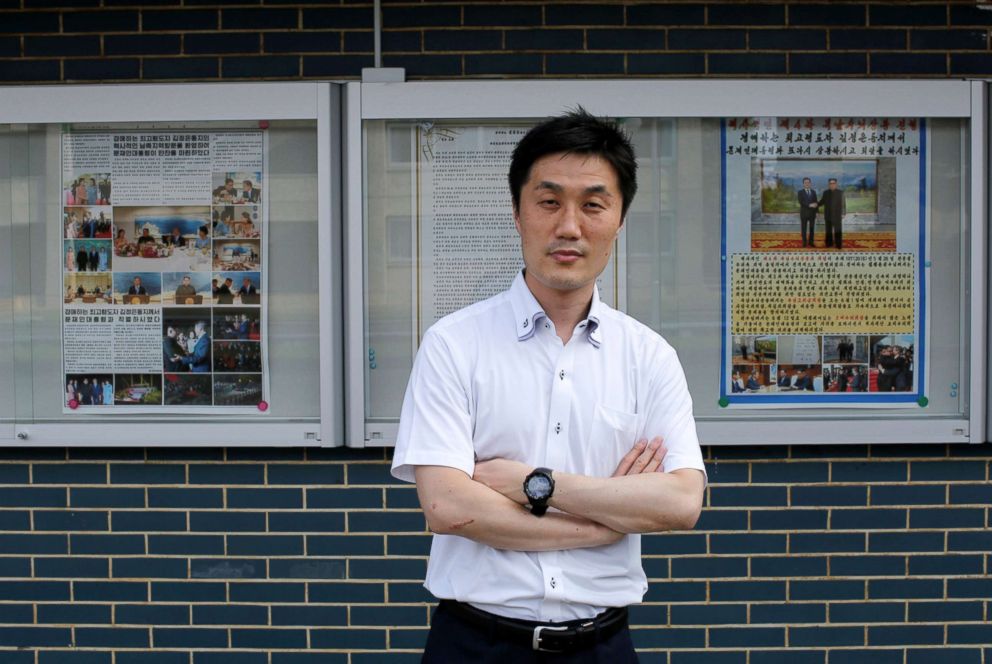
It is unlikely that just one meeting will achieve a major breakthrough, however, said Ryom Mun Song, a professor of international relations at Korea University, which has ties to Pyongyang but is not recognized by Japan.
"It will be difficult if each side just presents conditions the other side cannot accept," said Ryom, another third-generation ethnic Korean.
"However, if both sides keep in sight the goal (of complete nuclear disarmament), and through confidence-building measures, address it step-by-step with further meetings, then I think we can expect great results," he said.
Suggestions for North Korea to follow Libya in scrapping its nuclear weapons irked many North Koreans in Japan, who drew an unfavorable parallel with subsequent events.
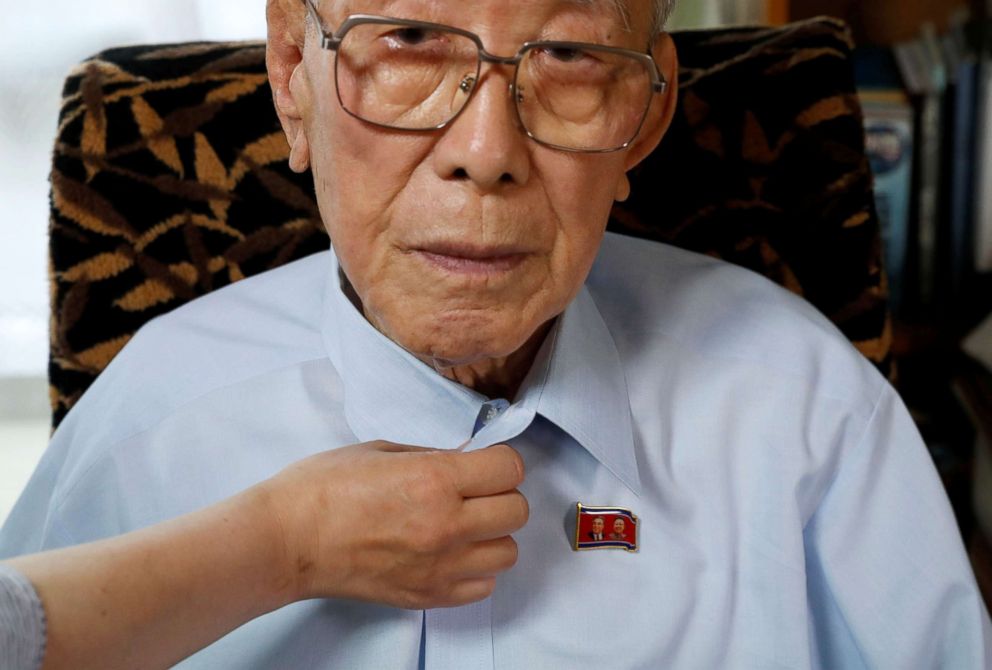
"Didn't the United States say we should take the Libyan approach? But wasn't Libya ruined by this approach?" asked 95-year-old Baek Chong Won.
Last month, North Korea criticized U.S. national security adviser John Bolton, who had urged it to give up its nuclear arsenal in a deal that would mirror Libya's abandonment of its program for weapons of mass destruction.
But Libyan leader Muammar Gaddafi was deposed and killed by NATO-backed militants several years later.
"How can we easily give up our nuclear weapons that North Korea developed when it has nothing to eat?" said Baek, whose lapel pin portrayed the last two generations of North Korea's leaders, forebears of its current ruler.
